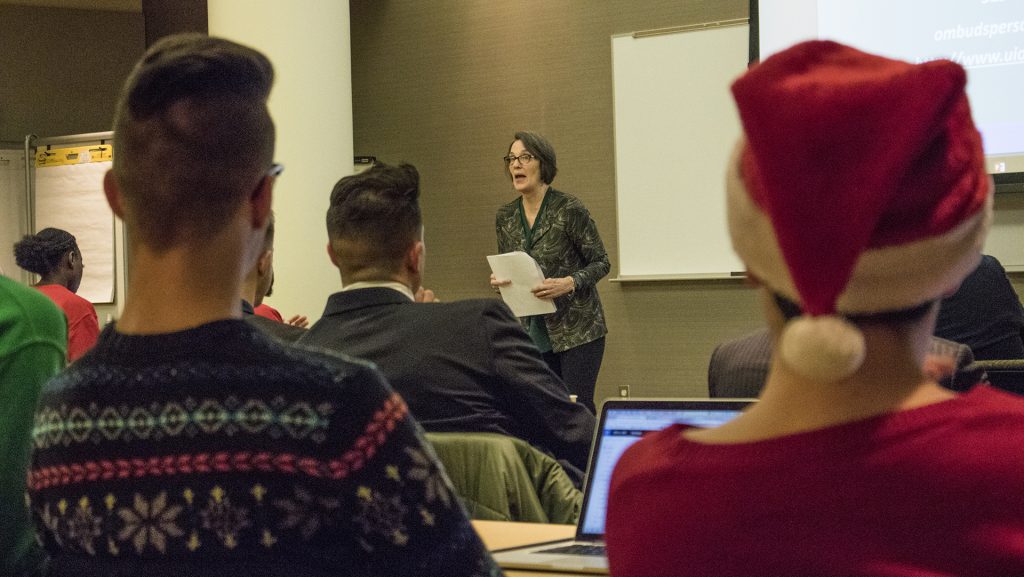Students not affiliated with a campus party or on a ticket will be able to run for a spot in the UISG senate in the spring elections.
Sarah Watson
[email protected]
For this spring’s elections, the University of Iowa Student Government will add another three independent-senator seats, bringing the total up to seven.
The legislation passed on Tuesday with about three-quarters of the Senate voting yes.
For independent Sen. Joseph Reed, getting involved with UISG seemed daunting at first because of his lack of knowledge about the election process and his low chance of being elected. He decided to run as an independent last spring despite his concerns.
“When I first started, there were only two independent senators, and that was really discouraging for me, thinking about how I’m running with all the thousands of undergraduates with only two seats available,” Reed said.
In the past two years, UISG has gone from zero reserved independent seats to seven in an effort to make running for UISG more accessible for the entire student body.
Other senators are elected on a ticket that includes a president candidate, vice president candidate, and 30 senator candidates. Many expressed how difficult it is to run without connections to members.
“You might have a great voice, and you might be a great leader, but just because you don’t know someone in UISG, it’s hard for you to get involved,” Reed said.
UISG voted in the 2015-16 year to introduce two independent senator seats. Then, two more were added last semester for the spring 2017 elections.
“The election system disadvantages those without connections to current members of the University of Iowa Student Government,” the 2015-2016 legislation stated.
Last semester, 13 candidates campaigned for four spots — a number former UISG President Rachel Zuckerman said was unprecedented.
“A theme that we all care about in UISG is making sure that our elections are accessible, and that if people want to run, they have the knowledge of the process and support necessary to run an adequate campaign,” UISG President Jacob Simpson said in a Q & A with The Daily Iowan on Monday.
Simpson went on to say that independent senators may or may not be the way to achieve more accessible elections.
Other efforts UISG has made to make elections more accessible were the election informational sessions. One happened before winter break and the other after in an effort to give everyone on campus an opportunity to learn how to run for UISG if they wanted to.
“I think it will be small changes, like changing the makeup of the Senate, that’s really going to make it so that more students are able to get involved UISG,” Reed said.
A few students expressed concerns about how changing the election code may not fix the problem of student accessibility, and it may put students at a disadvantage if they have already started the campaigning process for spring elections without knowing about the additional independent senator seats.
“Concerns that independent senators shared with us expressed that UISG was really hard to join. There were barriers, it was confusing,” Sen. Sara Bultsma said. “This doesn’t make it any less confusing.”
Some senators, including Bulstma, said UISG should focus more on transparency of the election process is rather than number of independent seats.
“I feel like it is our role as individuals already in UISG to advertise and educate people about the election process better and more clearly,” Sen. Abigail Simon said.



